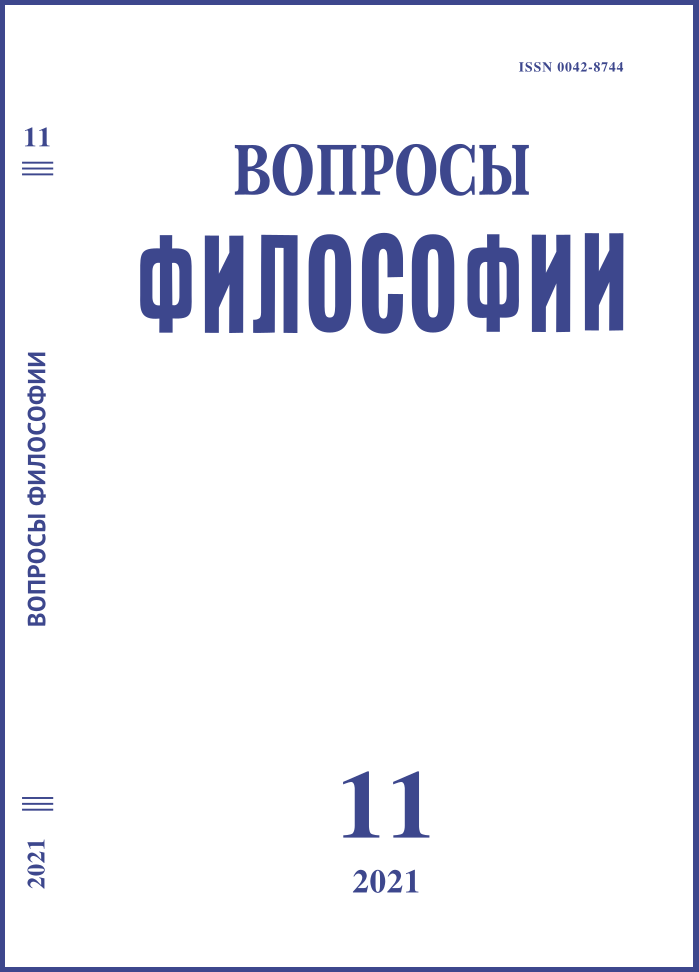Институт философии как учреждение и общественный институт
DOI:
https://doi.org/10.21146/0042-8744-2021-11-5-21Ключевые слова:
Институт философии, социальный институт, всемирная философская энциклопедия, идеология, шестидесятники, философский плюрализм, разум, науки о мозге, когнитивные науки, универсализмАннотация
В статье рассмотрена столетняя история Института философии Российской академии наук (ИФ) как государственного учреждения и особого социального института, показано, как он складывался в качестве исследовательского коллектива, способного охватить всю философию в ее дисциплинарном и идейном многообразии. Прослежена история систематизации философского знания в энциклопедической форме: первоначальный замысел Г.Г. Шпета (начало 1920-х гг.) сфокусировать усилия на вопросе «Что такое философия?»; проект исторического рассмотрения философии в свете материалистической диалектики как ее вершины (1928–1930); частично реализованный план конца 1930-х – начала 1940-х гг. написания семитомной всемирной истории философии; «Философская энциклопедия» в пяти томах (1960–1970); «Новая философская энциклопедия» (2000–2001 гг.) в четырех томах. В статье показано противоречивое взаимодействие задач исследования философии и ее развития. В истории ИФ выделены этапы: догматизм 1930–1940-х гг., гуманистический поворот середины 1950-х гг., отказ от монополии марксистской философии, плюрализм постсоветской философии. Современная ситуация поставила под сомнение привычные представления о том, что такое человек. Вызовы со стороны наук о мозге и когнитивных наук выдвигают на первый план новое понимание сознания и разума, что создает для ИФ общее поле исследовательской деятельности, а для его сотрудников захватывающие творческие перспективы.

